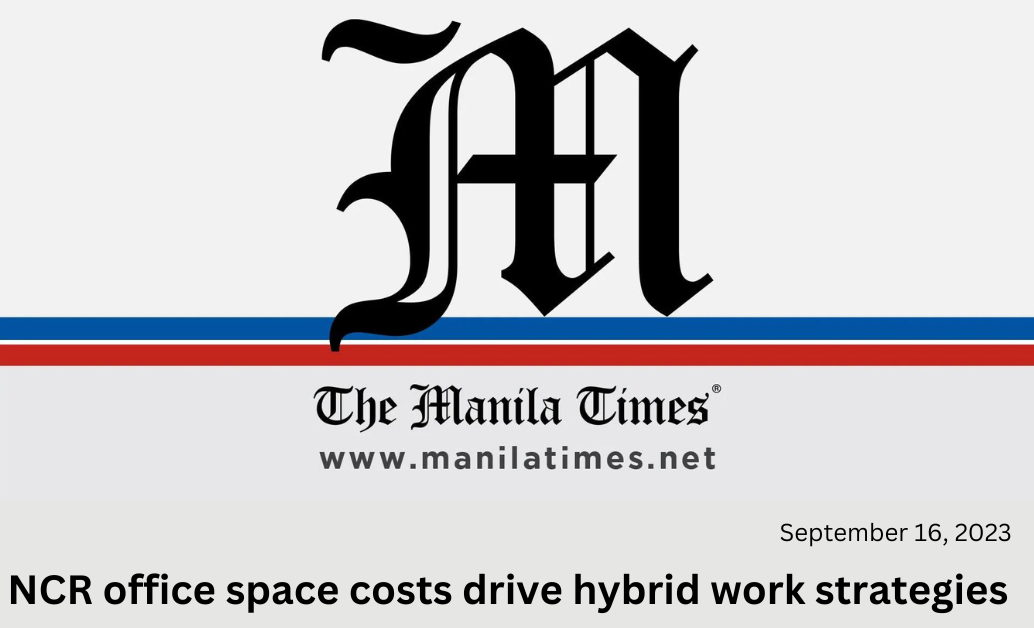IN Cushman & Wakefield’s latest 2023 Asia Pacific Office Fit Out Cost Guide, a notable trend emerges — Metro Manila secures its position as the third most expensive office space hub in Southeast Asia. The report highlights an average monthly rental rate of P1,041.00 per square meter, reflecting a 0.21-percent increase compared to the previous year. Coupled with inflation, supply chain disruptions and a competitive labor market, these figures are prompting a strategic shift toward hybrid work setups and downsizing among corporations.
Edna Palma, operations head of MyOffice Philippines, comments on the findings: “With rising inflation and escalating operational costs, business leaders are compelled to find innovative means to streamline office expenditures. The pandemic-driven familiarity with remote work has also played a role in this transition.”
To counter escalating costs, companies are adopting varied approaches. Some implement alternating office attendance schedules, effectively reducing required office space and overhead. JM Smucker Co. has chosen a more focused approach, requiring all employees to physically attend during critical weeks, such as production schedules or peak sales periods. Another strategy gaining traction involves subscribing to shared office spaces, allowing businesses to rent a few workstations or small offices, and providing employees with an alternate workspace outside their homes.
Beyond financial concerns, the geographical concentration of available office spaces poses challenges. According to Statista, 26 percent of office spaces are concentrated in Taguig and 20 percent in Makati. This situation complicates employee commuting, underscoring the ongoing relevance of hybrid work models. The accessibility of these locations to local and international firms, the ease of conducting business and the prestige associated with these areas still make them attractive addresses for businesses.
Commuting challenges further fuel the debate around hybrid work. Although no universal solution exists, corporations are exploring diverse alternatives. Strategies encompass co-living spaces near workplaces, reduced in-person meetings and renting shared desks in alternative cities, coupled with virtual office arrangements for official purposes.
“Makati and Taguig, followed by Pasig, continue to be the preferred business incorporation hubs for smaller enterprises,” notes Palma. “At MyOffice, we are witnessing a growing trend of businesses using our business address for registration, allowing them to maintain a strategic presence while alleviating the financial burden of maintaining a costly physical office space.”
Embracing hybrid work models isn’t just about cost-cutting; it’s about adapting to the evolving needs and expectations of the modern workforce. The shift toward flexibility and remote collaboration empowers employees to achieve a healthier work-life balance, boosts morale and enhances overall productivity. In this era of change, businesses that embrace innovation in both their operational strategies and workspace choices are not only weathering the storm but charting a course for a more resilient and prosperous future.



